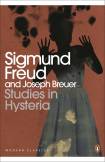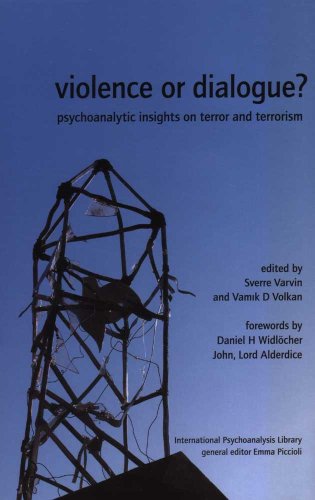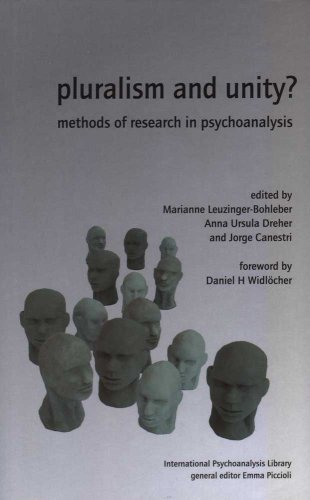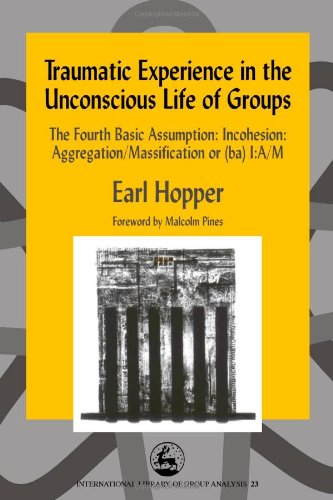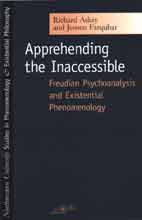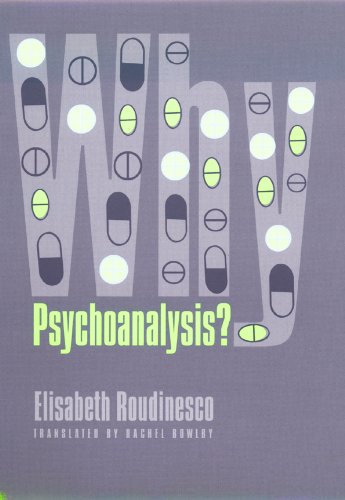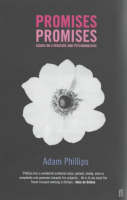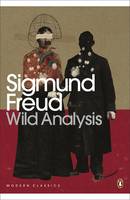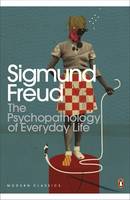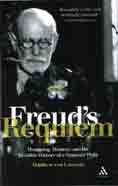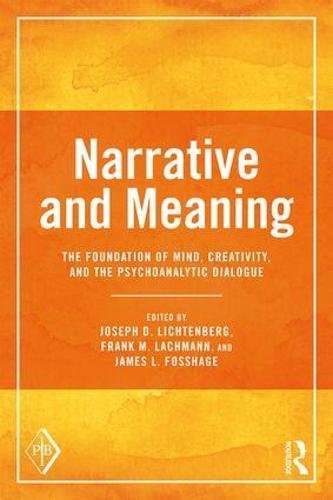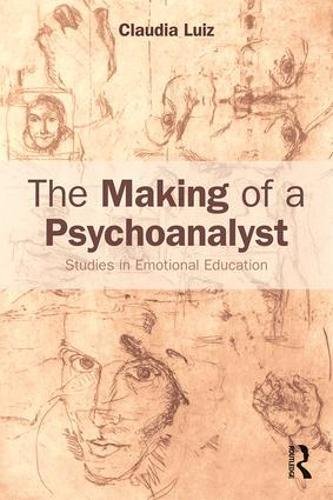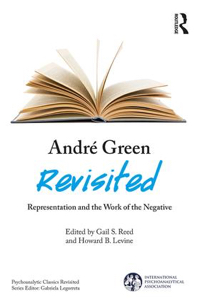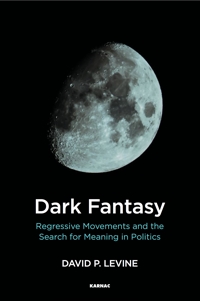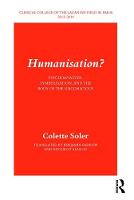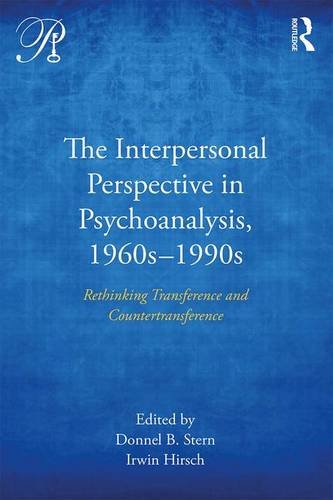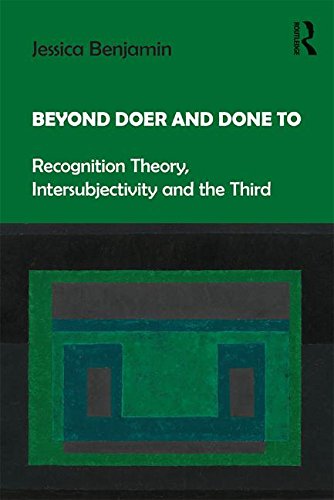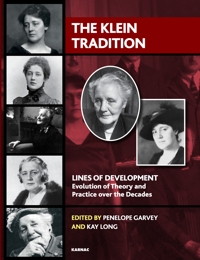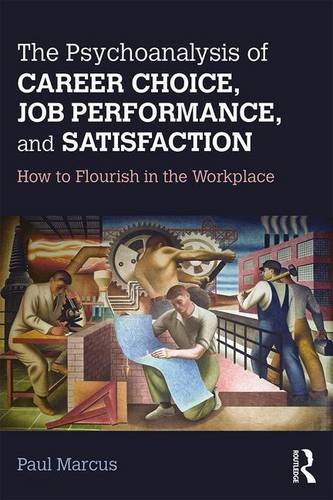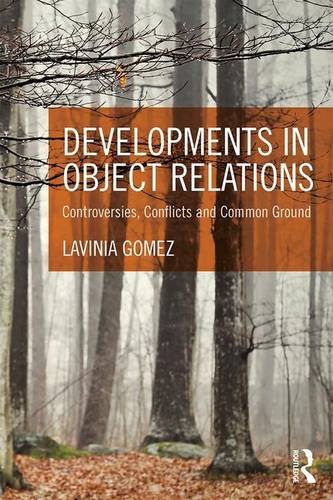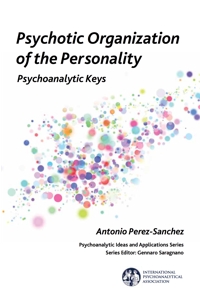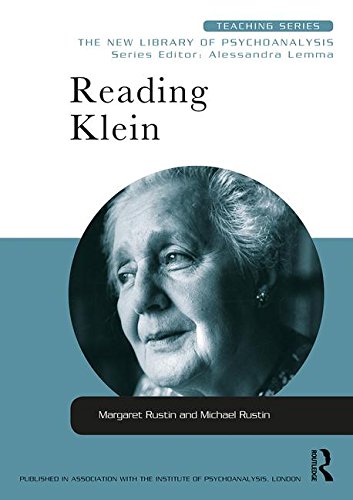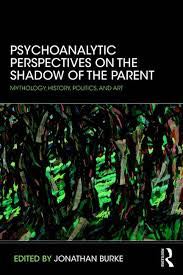Psychoanalysis Books
Studies in Hysteria
The tormenting of the body by the troubled mind, hysteria is among the most pervasive of human disorders - yet at the same time it is the most elusive. Freud's recognition that hysteria stemmed from... (more)
Siblings: Sex and Violence
This text examines the omission of siblings from theories that inform social knowledge in the Western world. It investigates the possible reasons why and starts the search for a new paradigm based on... (more)
Real and Imaginary Fathers: Development, Transference, and Healing
In this work, Salman Akhtar looks at how many fathers unconsciously, and sometimes quite consciously, attempt to revise their own traumatized childhood by providing their children with possibilities... (more)
Violence or Dialogue? Psychoanalytic Insights on Terror and Terrorism
Our understanding of terrorism since the events of September 11th 2001 has usually been channelled through the two dimensional lens of religion and politics. This important new work contributes a... (more)
Pluralism and Unity? Methods of Research in Psychoanalysis
A major challenge for the future of psychoanalysis as a science and as a profession, both in theory and in practice, is the ongoing development of conceptual, clinical and empirical research. This... (more)
Dark Continents: Psychoanalysis and Colonialism
Sigmund Freud infamously referred to womens sexuality as a dark continent for psychoanalysis, drawing on colonial explorer's Henry Morton Stanley's use of the same phrase to refer to Africa. While... (more)
Traumatic Experience in the Unconscious Life of Groups: The Fourth Basic Assumption: Incohesion: Aggregation/Massification or (ba) I:A/M
With full respect for the constraints of the social unconscious, Earl Hopper applies his theory of Incohesion to the treatment of difficult patients in group analysis. The personification of... (more)
Apprehending the Inaccessible: Freudian Psychoanalysis and Existential Phenomenology
Throughout history, philosophers have relentlessly pursued what may be called "inaccessible domains." This book explores how the traditions of existential phenomenology and Eastern philosophy, in... (more)
Why Psychoanalysis?
Elisabeth Roudinesco tackles this difficult question, exploring what she sees as a "depressive society": an epidemic of distress being addressed only by an increasing reliance on prescription drugs. (more)
Promises, Promises: Essays on Literature and Psychoanalysis
This is a collection of essays that sets out to make and break the links between psychoanalysis and literature. It gives insights into anorexia and cloning, the work of Tom Stoppard and A.E. Housman,... (more)
Wild Analysis
'Psychoanalytic treatment utilised the patient's capacity to love and desire as a means to an end. The stuff of romance became the stuff of cure. When Freud is writing about technique in... (more)
The Schreber Case
Freud rarely treated psychotic patients but he had a powerful and imaginative understanding of their condition - revealed, most notably, in this analysis of a remarkable memoir. In 1903, Judge Daniel... (more)
The Psychopathology of Everyday Life
This collection of writings is famous for giving us the phrase 'Freudian slip'. It also builds up a strong social history of Vienna and the middle-class social milieu of Freud and his patients.... (more)
Freud's Requiem: Mourning, Memory and the Invisible History of a Summer Walk
This absorbing, thoughtful narrative explores Sigmund Freud's provocative ideas on creativity and mortality and their roots in his history, while searching for broader lessons about love, memory,... (more)
Twins: From Fetus to Child
Scientifically based, but warmly human in content, this unique longitudinal study offers new insights to professionals working with mothers and families of twins and to researchers in human... (more)
Narrative and Meaning: The Foundation of Mind, Creativity, and the Psychoanalytic Dialogue
Narrative and Meaning examines the role of both in contemporary psychoanalytic practice, bringing together a distinguished group of contributors from across the intersubjective, relational, and... (more)
The Making of a Psychoanalyst: Studies in Emotional Education
In this unique and uplifting work, Dr Claudia Luiz reveals why psychoanalysis is more relevant than ever, perhaps the only discipline currently suitable to helping solve the mystery of our emotional... (more)
Bion and Contemporary Psychoanalysis: Reading a Memoir of the Future
This book examines the importance and continued relevance of A Memoir of the Future in understanding and applying Bion's work to contemporary psychoanalysis. Bion continued to innovate throughout his... (more)
Andre Green Revisited: Representation and the Work of the Negative
André Green was a leading voice in French psychoanalysis, a brilliant thinker and an innovative contributor to the psychoanalytic field. His writings sit at the crossroads of contemporary... (more)
Dark Fantasy: Regressive Movements and the Search for Meaning in Politics
Recent trends in politics culminating in the US with the election of Donald Trump both provoked and expressed a troubling intensification of emotion in the body politic. Heightened levels of anger,... (more)
Humanisation?: Psychoanalysis, Symbolisation, and the Body of the Unconscious
Unquenched desire, the dividing up of the drives, repetition, and symptom are the keywords concerning the effects on the body of the unconscious as deciphered by Freud. Harmony is not on the agenda,... (more)
The Interpersonal Perspective in Psychoanalysis, 1960s-1990s: Rethinking Transference and Countertransference
North American psychoanalysis has long been deeply influenced and substantially changed by clinical and theoretical perspectives first introduced by interpersonal psychoanalysis. Yet even today,... (more)
Beyond Doer and Done to: Recognition Theory, Intersubjectivity and the Third
Beyond Doer and Done to integrates new clinical developments in relational analysis while reformulating crucial themes such as the development of intersubjectivity, the splitting of gender... (more)
The Klein Tradition
Melanie Klein's extension of Freud's ideas - in particular her explorations into the world of the infant and her emphasis on the complex interactions between the infant's internal world of powerful... (more)
The Castration Complex: What is So Natural About Sexuality?
This book explores the psychoanalytic concept of castration and its relation to human sexuality. The central argument is that the contemporary perceptions of sexuality as ‘natural’ or ‘given’ or as... (more)
The Psychoanalysis of Career Choice, Job Performance, and Satisfaction: How to Flourish in the Workplace
Freud said that love and work are the central therapeutic goals of psychoanalysis; the twin pillars for a sound mind and for living the good life. While psychoanalysis has masterfully contributed to... (more)
Developments in Object Relations: Controversies, Conflicts, and Common Ground
Developments in Object Relations provides a highly accessible account of how British Object Relations developed in the second half of the twentieth century, focusing on the generation who took up... (more)
Psychotic Organization of the Personality: Psychoanalytic Keys
The book is a psychoanalytic understanding of psychosis as a particular organisation of the personality, based on 'psychotic personality' (Bion) and 'pathological organisations' (Steiner). The... (more)
Reading Klein
Reading Klein provides an introduction to the work of one of the twentieth century's greatest psychoanalysts, known in particular for her contribution in developing child analysis and for her vivid... (more)
Psychoanalytic Perspectives on the Shadow of the Parent: Mythology, History, Politics and Art
What do we mean when we say of others, of family members, and particularly of our elders, that they are “a hard act to follow”? Are we speaking of their achievements, their personality, their talents... (more)


